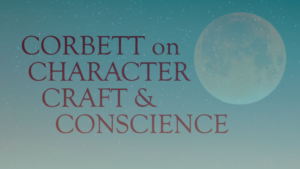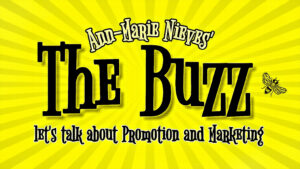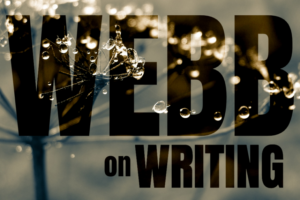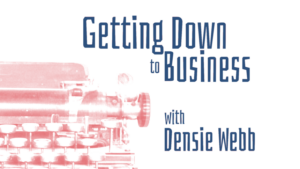traditional publishing
Three years ago, in mid-August, my first historical novel debuted in the summer of lockdown. The launch situation was far from ideal, and those of us who were published that summer did the best we could with bookshops closed and no in-person events. When August 2021 rolled around and my second novel was released along with the paperback version of the first, my expectations weren’t high. Another eerily quiet summer, another novel comes out into the world with a whisper.
The summers of 2020, ‘21, and ‘22 were all about book release and promotion, so there was some structure to my writing/author life. It’s late August 2023 as I write this. Things are better now for publishing authors, and though I don’t have a novel in the pipeline, through two launches I’ve developed a community of fellow writers and supportive readers. I’m celebrating friends’ book launches and live events, and sometimes speaking, mentoring, and teaching.
While my first two novels were coming out into the world, I found it tough to begin a new draft. Here, I should qualify that when my manuscript sold in a two-book deal, I had a completed draft of the second and it was a stand-alone sequel. I have real admiration for authors who crank out a book a year. While promoting a recently published book, I needed to keep that set of characters fresh in my head so I could talk about them when questions were asked (even though all authors answer the same questions multiple times). We hone our sound bites, quips, our interjections of humor, and (especially with historical fiction) we can recall historical dates and events at the drop of a hat. It’s tricky, when you’re interviewed for 45 seconds on live radio and the DJ poses questions like: So, who stars in the movie? The clock is ticking while you hem and haw, trying to remember the names of any under-thirty actors. So I was reluctant to try to bring a new set of characters to life. Plus, the pandemic sucked the creativity from my soul for a while.
For the past year, I’ve been working on a third manuscript on and off. The most recent (fifth) draft is, at present, with an editor. So there’s that waiting-to-hear-comments time, which I am now really good at enduring, as well as the sense of relief that comes with completing specific goals. The fine-tuning of this novel has been slow going, and that’s fine. There’s no deadline. I’m surprised by how nice I’ve been about it—to myself, I mean. I’ve felt fortunate that I’ve been able to move at my own pace with this project. While I work well under the pressure of a deadline, I know now that I couldn’t have written this book in one year. The story needed time to germinate and develop. I like to leave room for historical research to shape my plot, and for my characters to surprise me. Don’t get me wrong, I do still feel a strong drive to get this novel to the finish line. I’ve learned—with no deadline—what my own writing process is, and also, that I need to trust it. That’s worth something, isn’t it?
When asked to choose, I’ve considered myself a hybrid Plotter/Pantser. […]
Read More
Permit me a moment of apostasy.
I realize it might seem perverse to pursue this topic in light of Jim Dempsey’s far more sanguine post from just this past Tuesday (“How Books Can Change Lives”), but for some time, I’ve had the uneasy feeling that the merits of storytelling have been oversold. The use of the mercantile metaphor is deliberate. In any ever-increasing number of realms, the “craft of narrative” is being used to justify the unjustifiable—the dishonest, the trivial, the crass, the sanctimonious, the unnecessary, and all manner of other dubious ends.
Tell the story has become the hallmark of the hustle. Give the folks a convincing, compelling tale and they’re yours, facts be damned.
We’re even told that facts are meaningless outside a narrative—an approach that turns scientific theory into a kind of fable.
A particularly compelling example of this appeared in an article from late last year in the open access journal Natural Sciences. The article was titled, “Pseudo-embryology and personhood: How embryological pseudoscience helps structure the American abortion debate.” It opens with this:
Scientists have identified more than one possible point at which an individual life, personhood, with its own identity, and defined in various ways, begins. There is no consensus among biologists as to when an independent human life begins. Those people who invoke the scientific community to justify the idea that fertilization is the unequivocal moment of independent identity for the human embryo are expressing mythological and political ideas, not contemporary scientific facts. These mythologies have deep and powerful roots, and they are hard to leave behind. We often look back on how eugenics distorted American politics a century ago, how women were being sterilized in the name of science, and we congratulate ourselves, thinking that such distortions could not happen again. They have.
Though quite technical, the piece is highly instructive on how embryology does not fit neatly into the stories various camps want to tell about when “life begins”—conception? The quickening? Birth? (Interesting aside: in many traditions, soul and breath are the same word, implying the newborn does not acquire a soul until it draws its first independent breath. And since reading this article, I encountered still another account of when a newborn acquires personhood, this one from Killers of the Flower Moon by David Grann. He recounts that among the Osage Indians, a child is not considered a person until he or she is given a name, which symbolically includes him or her in the social fabric of the tribe.)
The point: stories that masquerade as scientific truth (or any truth) betray the motives of the teller—to persuade without the messy, complicated, often inexplicable evidence that an honest inquiry requires.
It’s not just swindlers and ideologues peddling narrative snake oil, of course. Some genuine heavyweights have opined on the matter.
Camus famously remarked, “Fiction is the lie through which we tell the truth.” And Tim O’Brien, whose “How to Tell a True War Story” should be required reading for anyone who intends to put words on a page, defined the purpose of fiction as “getting at the truth when the truth isn’t sufficient for the truth.”
Back in June, 2019 (four years ago—Holy Moly, where did the time […]
Read MoreAfter the excitement of a “yes” from a publisher comes the job of assessing your publishing contract.
Facing down ten pages of dense legalese can be a daunting task, especially for new and inexperienced writers, who may not have the resources to hire a literary lawyer, or have access to a knowledgeable person who can help de-mystify the offer terms.
And it is really, really important to assess and understand those terms, because publishing contracts are written to the advantage of publishers. While a good contract should strike a reasonable balance between the publisher’s interests and the writer’s benefit, a bad contract…not so much.
In this article, I’m going to focus on contract language that gives too much benefit to the publisher, and too little to the author. Consider these contract clauses to be red flags wherever you encounter them. (All of the images below are taken from contracts that have been shared with me by authors.)
Copyright Transfer
Unless you are doing work-for-hire, such as writing for a media tie-in franchise, a publisher should not take ownership of your copyright. For most publishers, copyright ownership doesn’t provide any meaningful advantage over a conventional grant of rights, and there’s no reason to require it. Even where the transfer is temporary, with rights reverting back to you at some point, it doesn’t change the fact that for as long as the contract is in force, your copyright does not belong to you.
Copyright transfers usually appear in the Grant of Rights clause. Look for phrases like “all right, title and interest in and to the Work” and “including but not limited to all copyrights therein.”
Watch out also for contracts where a copyright transfer in the Grant of Rights clause is contradicted by language later on–such as requiring the publisher to print a copyright notice in the name of the author (which shouldn’t be possible if the author no longer owns the copyright). For one thing, you don’t want your contract to be internally contradictory, which could pose legal issues down the road. For another, such contradictions suggest that the publisher doesn’t understand its own contract language, which is never a good thing.
There’s more on the not-uncommon problem of internal contradictions here.
Life of Copyright Grant Without Adequate Reversion Language
Big publishers routinely require you to grant rights for the full term of copyright (in the US, Canada, and most of Europe, your lifetime plus 70 years). Although they’re more likely to offer time-limited contracts, many smaller presses do as well.
Contrary to much popular belief, this is not necessarily a red flag…as long it’s balanced by clear, detailed language that ensures you can request contract termination and rights reversion once sales drop below specific benchmarks: for example, fewer than 100 copies sold during the previous 12 months, or less than $250 in royalties paid in each of two prior royalty periods. Publishers like to sit on rights, because they can make money from even low-selling books if they have a big enough catalog. Authors, on the other hand, don’t benefit from a book that’s selling only a handful of copies and getting no promotional support. At that point, it’s better to be able to revert your rights and […]
Read MoreWhen I first decided to write a series — in this case, the matriarchal fantasy series The Five Queendoms — it was an easy choice. I wanted to create a rich world too complex to fully explore in just one book, and I wanted to follow the course of characters’ intertwining lives over many years, so a series was the most logical option. Genre, too, factored in. When I was writing historical fiction, standalone novels made the most sense, but fantasy readers love a big juicy series. I decided I was ready, and leapt in.
And for two novels, it all went according to plan. But as most of us know, writing and publishing are overlapping pursuits that don’t always line up perfectly. And I have a contract that only accounts for three novels, even if I feel like I could write novels set in this world I’ve created for years and years and years.
So my third book will be the end of a trilogy… while leaving a number of doors open for following these characters and others through an ongoing series of events, and hopefully, books.
Let’s just call that a bit of a challenge.
After writing a 90K-word draft that treated the third book as a continuation and not a completion, I had to step back and reconsider my options. I could submit a book that didn’t end a trilogy, and almost certainly have it rejected by the publisher, which would lead to a whole other set of ramifications and decisions. I could rewrite it completely to tie up all the loose ends and close out the trilogy in a final sort of way, which definitely flew in the face of what I wanted artistically. After considering both of those options thoroughly, I did what I so often do: I chose the middle path.
(The hard one, let’s be clear.)
Here’s what finally helped me figure out how to do it: I put myself in the shoes of a TV writer. I imagined my task as writing the season finale of a series that might or might not be renewed. It happens on TV all the time, right?
So: no cliffhangers. (Books one and two, though each resolved the main conflict of a self-contained story, also introduced the main conflict that the next book in the series would address.) Book three had to have a satisfying ending that followed naturally from books one and two, in addition to resolving its own self-contained story. My rule for standalone and series writing alike is this: the beginning of any book makes a promise that the end of the book must keep.
But there are ways to end without ending. Books one and two both planted seeds that haven’t yet grown to full fruition, and the trick of the “season finale” approach is to avoid disappointing readers with what you choose to leave unresolved. You can’t make every reader happy with every decision. But I’m hoping that the way I’ve chosen to resolve book three will thread that needle.
How would you solve the dilemma of ending a story for now without ending it forever?
Read More“Everyone has to start somewhere.”
It’s a familiar truism. And like most truisms, it states a fact so self-evident that there’s no need to really think about it. There’s no start without a starting point, right?
Too often, however, it’s used to dismiss or excuse a lack of skill or training or experience or some other important qualification for doing something that requires expertise.
Because “starting” doesn’t necessarily mean starting from zero. If you start your own law practice, you’ve presumably gone to law school and passed the bar. If you start your own contracting firm, you’ve hopefully apprenticed and/or worked with other builders. If you start your own real estate agency, you’ve taken courses and obtained a license.
Non-zero starting points are just as important for new literary agents and publishers. This may seem obvious—but it’s a fact that writers too often ignore.
THE IMPORTANCE OF EXPERIENCE
Working as a literary agent, or running a publisher, is not an entry-level job. These are complicated, challenging professions that demand specialized knowledge and expertise—not just because skill is needed for success, but because the publishing industry is weird and opaque and clubby and really, really difficult to figure out from outside.
An agent needs—at a minimum–to have contacts at publishing houses and an understanding of publishing contract terms, as well as a nose for marketable manuscripts (not as easy as it sounds). A publisher must—also at a minimum—understand editing and marketing, know how books are acquired and distributed, be capable of creating a fair contract, be able to hire qualified staff–and, just as important, have a business plan.
Such skills don’t come out of the blue. They’re best acquired through training at a reputable agency, or working in publishing in some capacity. Because there are no licensing or educational requirements for literary agents, however, and the easy availability of digital publishing technology makes starting a publisher as simple as setting up an Ingram Spark account, anyone can become an agent or a publisher…even if they have absolutely no qualifications for doing so.
Inexperienced agents and publishers often have unrealistic ideas about what it takes to succeed. They may believe that a love of books and writing is enough to bridge the knowledge gap, or that the scars of a previous bad publishing experience will empower them to do better. They may imagine that publishing is a fun side hustle they can do in their spare time, or that a career in corporate sales gives them skills transferable to agenting. They may not realize the importance of a business plan, and assume it’s okay to skip the prep work—to just jump in and learn as they go.
That’s not to say they don’t have the best intentions. Frequently, they do. But without professional skills and experience, they are at a significant disadvantage, and face a high risk of failure in an extremely competitive industry that’s precarious even for people with substantial credentials.
THE PRICE OF INEXPERIENCE
Brand-new agents and publishers still building their lists offer the possibility of access, in an industry where access is highly restricted and competitive. Along with hope, dreams, and the frustrations of the query process, it’s one of the main reasons why so many writers are willing to give unqualified people a pass.
Failure isn’t the only thing you’re risking […]
Read More



















